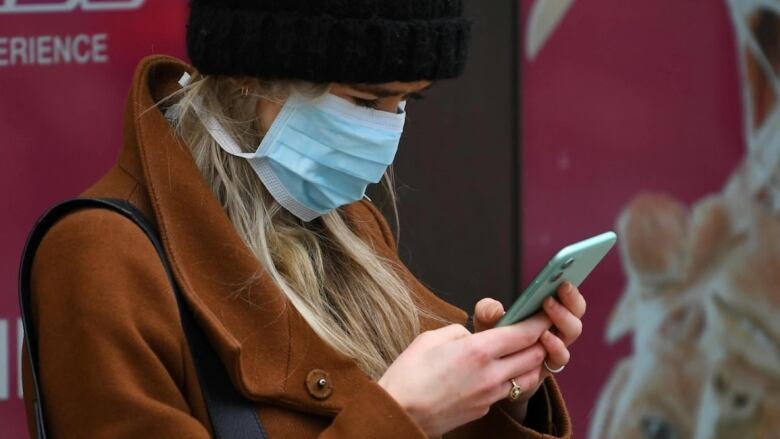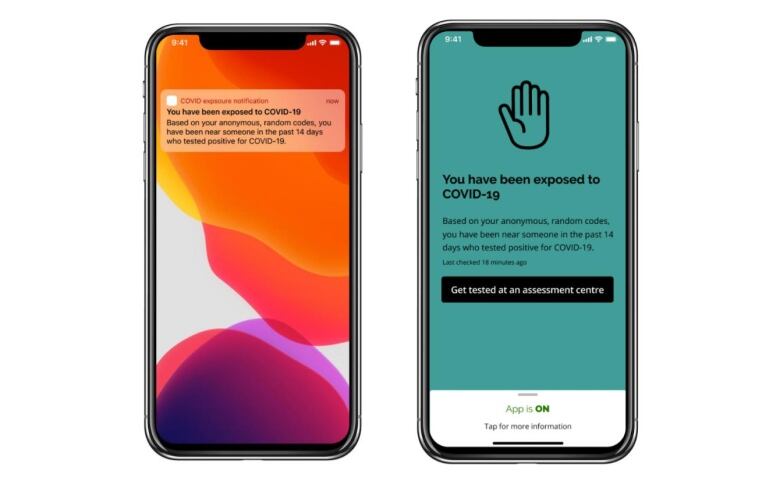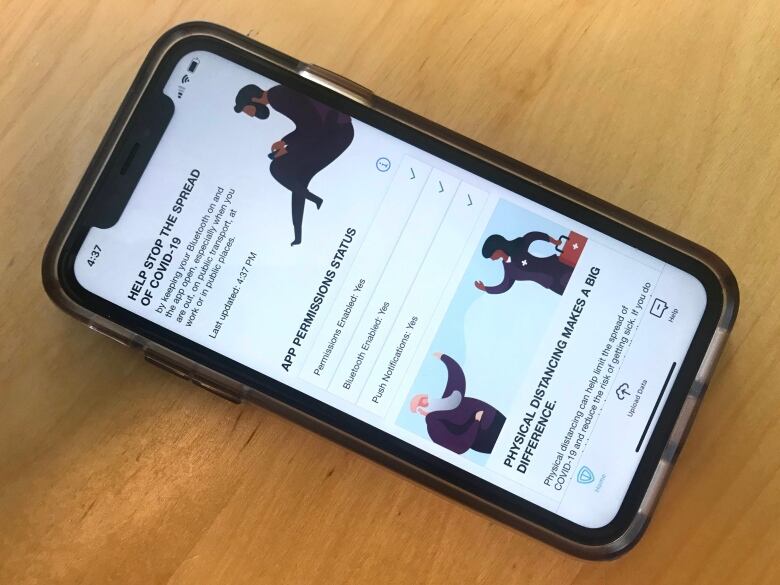COVID Alert, federally backed contact tracing app, hints at what Manitobans may be able to expect
Federally backed app COVID Alert set to roll out in Ontario this month

A new app designed to help fight the spread of COVID-19 is rolling out in Ontario this month, offering Manitobans a hint of what they might be able to expect down the road.
Ontarians are expected to soon get access to COVID Alert, a new, federally endorsed app to let you know whether you've been exposed to someone who has the virus. Last month, Ontario officials said they hoped to have it ready for download by Thursday, although the rollout was delayed.
The app uses Bluetooth technology to communicate between the phones of users. If you test positive, you plug an anonymous code into the app. Using Bluetooth signals, the app can tell whether you've been close to another user who tested positive, and sends notifications to encourage you to get tested if you have.
The first rollout of the voluntary app has been slated for Ontario, but Prime Minister Justin Trudeau has already said he hopes to see the app in use across Canada in the coming months.

This week, a spokesperson for the province of Manitoba said officials are aware of the federally backed app, but want to learn more about it before signing on.
"Work will need to be done to see how an app could work in Manitoba, both with public health and data teams, as well as the protection of personal information," the spokesperson wrote in an email.
"If Manitoba makes a decision to adopt any technology, other privacy protocols, available advice and legislative obligations will be given proper consideration."
The app has the potential to be a powerful tool to support and speed up traditional contact tracing efforts, according to Dr. Jason Kindrachuk, an assistant professor and Canada Research chair in emerging viruses at the University of Manitoba.
"[Contact tracers spend] hours and hours and hourstrying to trace back who's been in contact with a particular person that's infected or potentially infected," he said.
"This app or an app like this would basically take all of that and, you know, really use new technology to drive that process forward."
New function, familiar technology
The technology behind COVID Alert and other Bluetooth-based apps has been around for a long time, says David Lie, a professor in the departments of computer science and electrical and computer engineering at the University of Toronto.
But Lie says he's not aware of any use of the technology to help with contact tracing prior to the COVID-19 pandemic.
In the months since the pandemic started, versions of theapps have already rolled out in jurisdictions around the world including Germany and Japan. In Canada, Alberta has also already launched its own app, ABTraceTogether.
The functionality and privacy protection of these apps can vary widely, Lie says but the COVID Alert model appears to have taken a more privacy-focused approach.

For that reason, the moniker "contact tracing app" is a misnomer in this case, Lie said; "exposure notification" is more accurate. The app has been designed to leave users anonymous to one another, doesn't store personal or medical information and won't incorporate GPS-location data.
The app hasn't been deployed widely yet, but based on the technology it uses, Lie says the app will have a few readily identifiable limitations.
"[It] does not give you information about where you might have been exposed, when it is, or who you might have come in contact with," he said. "That's the type of information that contract tracers often find very useful."
It'll also be limited by the nature of Bluetooth technology, Lie says , which won't be able to determine details such as exactly how close you were to the source of exposureor whether there was an obstacle such as awall between you and the other person.
Buy-in a crucial factor
Itremains unclear exactly how many people need to use the app for Canadians to reap benefits, Lie says.
"That kind of data is just data we don't have," he said. "I've heard estimates of anywhere from 50 per cent [to] upwards of 70 or 80 per cent."
Trudeau has said there are roughly 30 million smartphones in use in Canada but Lie and other experts note that doesn't mean they're evenly distributed.
In Manitoba, advocates have raised concerns about whether the app will serve those in rural or remote areas where cell service and internet access is inconsistent.
"There's a considerable lack of infrastructure for [some Manitoba] communities, for computers, Wi-Fi," said Arlen Dumas, grand chief of the Assembly of Manitoba Chiefs.
As an example, Dumas says, First Nations leaders have been advocating for years to get better internet access. Now, they're facing a pandemic and the situation has become urgent.
"It's absolutely frustrating," he said.
Be upfront about limitations: expert
If and when Manitoba rolls out COVID Alert or another app, Kindrachuk says, the province will need to step up messaging to the public to ensure it gets used.
"Be upfront with the limitations," he said. "This is something that we are using basically for the first time on the ground."
It will be difficult for experts to measure the success of the app, Lie says, because variables influencing its use here and around the world are so different.
He hopes the technology sparks a larger conversation among Canadians about the balance between privacy and public good, in the context of a pandemic app or otherwise.
"We don't know the outcome of a lot of things that have to do with the current pandemic," he said. "This is just another one of those."












_(720p).jpg)


 OFFICIAL HD MUSIC VIDEO.jpg)
.jpg)



























































































